The Commission is co-chaired by Sarah Hawkes (Head of Global Population Health at Monash University Malaysia and Co-Founder and Co-CEO of Global Health 50/50) and Elhadj As Sy (Chair of the Kofi Annan Foundation and former Secretary General of the International Federation of Red Cross and Red Crescent Societies).
Alongside the two co-chairs, the Commission brings together 18 independent Commissioners with a wide range of expertise and experience – from people working with community health groups to those working on the global governance of the corporate determinants of health, through to human rights scholars and practitioners – and representing a range of global health topics and disciplines, geographies, and genders. Explore the expertise and inputs of the Commissioners here. The Commissioners are supported by a Secretariat.
Inputs into the Commission are far broader than the work of the co-chairs and Commissioners; the Commission has involved a public engagement strategy which privileged a diversity of voices and scholarship across a range of views in order to understand the complexity of defining and addressing gender, intersectionality, and health.
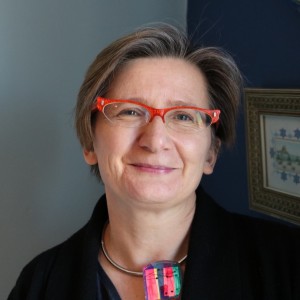
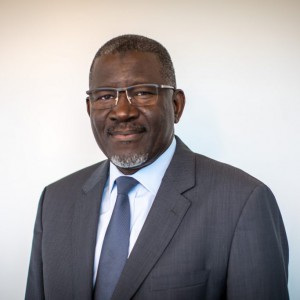
Prior to his leadership role at the IFRC, Mr Sy was UNICEF’s Director of Partnerships and Resource Development in New York. He has also served as UNICEF Regional Director for Eastern and Southern Africa and Global Emergency Coordinator for the Horn of Africa. Mr Sy held leadership positions with the United Nations Development Programme in New York, with the Global Fund to fight AIDS, Tuberculosis and Malaria and with UNAIDS. Before joining the United Nations, Mr Sy served as Director of Health and Development Programmes with Environment and Development Action in the Third World in Dakar, Senegal.
Key expertise: Advocacy, Community Engagement, Gender, Governance, Humanitarian, Crisis and Disaster settings, Infectious diseases, Policy development, Programme implementation or service delivery, Social sciences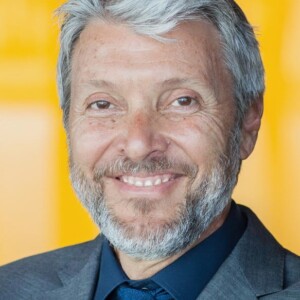
Gary Barker is CEO and founder of Promundo, which has worked for more than 20 years in more than 40 countries to engage men and boys in achieving gender equality and ending violence against women and girls. Gary is also the co-founder of MenCare, a global campaign working in more than 40 countries to promote men’s involvement as equitable, non-violent caregivers, and co-founder of MenEngage, a global alliance of more than 700 NGOs and UN agencies. He created and leads IMAGES (the International Men and Gender Equality Survey), the largest survey of Men’s attitudes and behaviors related to violence, fatherhood, and gender equality, which to date includes more than 60,000 interviews in more than 40 countries.
Key expertise: Advocacy, Community Engagement, Equity, Gender, Gender Based Violence, Masculinities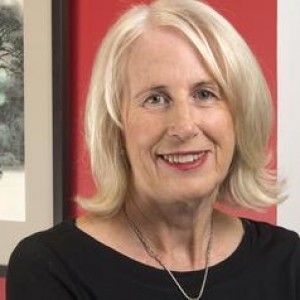
Fran Baum was named in the Queen’s Birthday 2016 Honours List as an Officer of the Order of Australia (AO) for “distinguished service to higher education as an academic and public health researcher, as an advocate for improved access to community health care, and to professional organisations.” She is a Fellow of the Academy of the Social Sciences in Australia, the Australian Academy of Health and Medical Sciences, and the Australian Health Promotion Association. She is a past National President and Life Member of the Public Health Association of Australia. She is co- Chair of the Global Steering Council of the People’s Health Movement – a global network of health activists (www. phMovement.org). She also served as a Commissioner on the World Health Organization’s Commission on the Social Determinants of Health from 2005-08.
Key expertise: Advocacy, Community engagement, Equity, Health Systems, Policy development, Research, Social sciences, Political economy of health, policy analysis, evaluation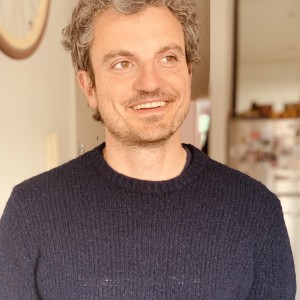
Ben Cislaghi is an Associate Professor at the Gender, Health and Violence Centre of the London School of Hygiene and Tropical Medicine. Before joining the academia, Ben worked for various NGOs and international organisations, including UNICEF, WHO, and ILO and collaborated with several universities, including Stanford and Columbia. In Senegal, he was director of research for the NGO Tostan, a veteran in implementing effective people-led gender transformative interventions. His research work at the LSHTM has contributed to increasing the understanding of how gender norms affect people’s health and how their effect can be measured. There, he leads a team of researchers and activists working at the intersection between gender equality, child protection, and ethics of international development.
Key expertise: Advocacy, Community engagement, Equity, Gender, Gender based violence, Implementation Research, Intersectionality, Masculinities, Research, Rights and Ethics, Sexual and Reproductive Health, Social sciences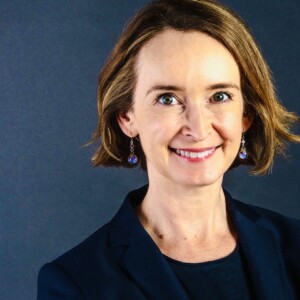
Dr Jocalyn Clark is an award-winning public health scientist and journalist, and one of the world’s most experienced medical journal editors. Over a 22 year editorial career at The BMJ, The Lancet, and PLOS Medicine, her editorial leadership has helped globalise and diversify the top medical journals, reshaping the literature to be more inclusive of global health content, women, and experts from low and middle income countries.
Currently International Editor of The BMJ, she was previously an Executive Editor of The Lancet (2016-2022) where she co-led #LancetWomen to advance women in science, medicine and global health, and led major projects in areas of gender and health, women’s health, oral health, and migration, and was the lead editor of the Lancet Commission on Gender and Global Health.
Jocalyn is an advisor to Global Health 50/50 and WomenLift Health, former Chair of the governance council of the CMAJ, co-founder of advocacy groups Canadian Women in Global Health and WGH Canada, and an adjunct professor of medicine at the University of Toronto and an honorary associate professor at the Institute for Global Health, University College London.
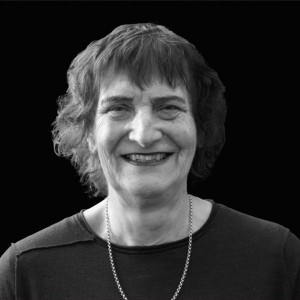
Raewyn Connell has taught in several countries and is a widely cited sociological researcher, and the author of Gender & Power, Masculinities, and Southern Theory. Her recent books include The Good University and Knowledge and Global Power (with Fran Collyer, João Maia and Robert Morrell). Her work has been translated into 19 languages. Raewyn has been active in the labour movement, the peace Movement, and work for gender equality. Details at www.raewynconnell.net and Twitter @raewynconnell.
Key expertise: Equity, Gender, Masculinities, Research, Social sciences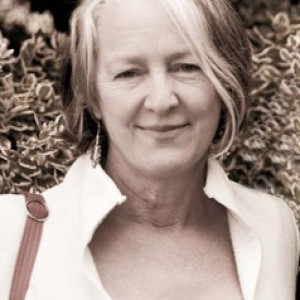
Morna Cornell is an Honorary Research Associate at the School of Public Health, University of Cape Town (UCT), South Africa. Her background is in HIV activism and research management. From 1992-2000 she was Executive Director of the AIDS Consortium, a national HIV/AIDS network. She was a founder member of the Treatment Action Campaign (TAC), which successfully lobbied for public sector antiretroviral therapy (ART) in South Africa. From 2007-2024, she managed IeDEA-SA (the International Epidemiology Databases to Evaluate AIDS Southern Africa), a highly productive regional scientific collaboration.
Morna holds a Masters in Public Health (Epidemiology) and a PhD from UCT. She has published extensively, with a particular focus on (heterosexual) men as a population whose health needs are both underserved and under-acknowledged. Morna was a co-investigator on the iALARM (Using Information to Align Services and Link and Retain Men in the HIV Cascade) and BRIDGES (Building Research to Integrate and Deepen the Gains against HIV through the Social Sciences) studies from 2015-2024, leading networking and advocacy to increase the body of research on men and HIV and to raise the profile of men’s health. Since 2021, she has been a co-investigator on the IDEaL (Identifying efficient linkage strategies for men) RCT in Malawi.
Key expertise: Advocacy, Research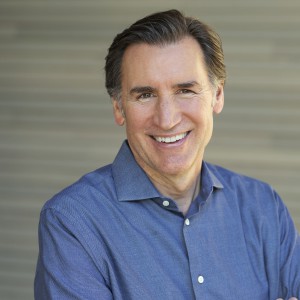
Gary L. Darmstadt, MD, MS recently led the Steering Committee for The Lancet Series on Gender Equality, Norms and Health. Previously Dr. Darmstadt was Senior Fellow in the Global Development Programme at the Bill & Melinda Gates Foundation (BMGF), where he catalyzed gender equality programs including establishment of Grand Challenges on Putting Women and Girls at the Center of Development. Prior to this role, he served as BMGF Director of Family Health, leading strategy development and implementation across nutrition, family planning and maternal, newborn, and child health. Darmstadt was formerly Associate Professor and Founding Director of the International Center for Advancing Neonatal Health in the Department of International Health at the Johns Hopkins Bloomberg School of Public Health.
Key expertise: Paediatrician, Gender, Global health research, Clinical research, Infectious diseases, Maternal Newborn and Child Health, Programme implementation or service delivery, Implementation research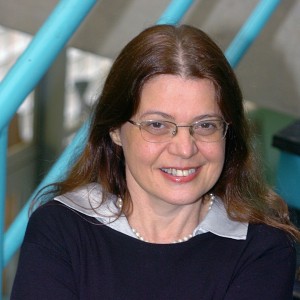
C. Simone G. Diniz, MD, PhD, is a professor of the Department of Health and Life Cycles, and deputy director, of the School of Public Health, University of São Paulo. Collaborated for 20 years with the São Paulo Feminist Collective of Sexuality and Health, in care activities, research, training and policy-making. Areas of interest include Sexual and Reproductive Health and Rights, Gender Violence, Gender and Maternal Health, Maternal and Child Policies and Programs, Evidence-based Public Health, and the Change Laboratory. Presently researching the implementation of Mother-and-Child-friendly services, and innovative measures of gestational age, as part of the Grand Challenge – Data Science in Maternal and Child Health program. A member of the Gender and Health Group of the Brazilian Public Health Association (ABRASCO) and of the Brazilian Group for Studies of COVID-19 in Pregnancy.
Key expertise: Digital Health, Equity, Gender, Gender based violence, Health Systems, Maternal and Child Health, Research, Sexual and Reproductive Health, Programme implementation or service delivery, Policy development, Implementation Research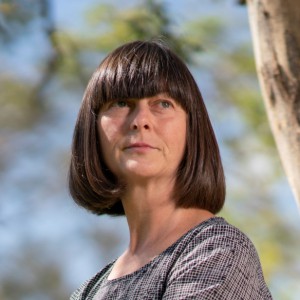
Sharon Friel is an Australian Research Council Laureate Fellow and Professor of Health Equity in the School of Regulation and Global Governance. She is Director of the Planetary Health Equity Hothouse and Australian Research Centre for Health Equity (ARCHE) at the Australian National University. Between 2005 and 2008 she was the Head of the Scientific Secretariat (University College London) for the World Health Organization’s landmark global Commission on Social Determinants of Health. She was made a Fellow of the Academy of Social Sciences Australia (2015) and the Academy of Health and Medical Sciences (2021). Professor Friel’s work focuses on governance of the planetary, social and commercial determinants of health inequities.
Key expertise: Equity, Governance, Social sciences, Research, Non-Communicable Diseases, Advocacy, Political economy of health inequity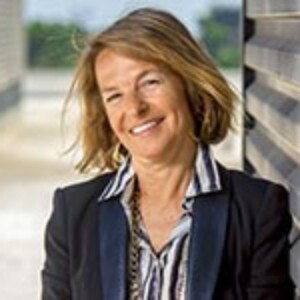
Sofia Gruskin is recognized as a pioneer in multi-disciplinary approaches to global health with work ranging from global policy to the grassroots level, and particularly for her efforts to bring attention to the effects of law and legal frameworks on health outcomes. Her work has been instrumental in developing the conceptual, methodological, and empirical links between global health and human rights, with a focus on sexual and reproductive health, child and adolescent health, HIV/AIDS, gender-based violence, non-communicable disease and health systems. Professor Gruskin sits on several international committees. She has published extensively, including several books, training manuals and edited journal volumes, and more than 200 articles and chapters covering a wide range of topics. She is an associate editor for Global Public Health, on the editorial advisory board for Revue Tiers Monde, a trustee of Sexual and Reproductive Health Matters, and was an associate editor of the American Journal of Public Health and editor in chief for Health and Human Rights both for over a decade.
Key expertise: Equity, Gender, Governance, Health Systems, Health policy, Law, Advocacy, Maternal and Child Health, Non-Communicable Diseases, , Programme implementation, service delivery, Rights-based Monitoring and Evaluation, Research, Ethics, Sexual and Reproductive Health, Social sciences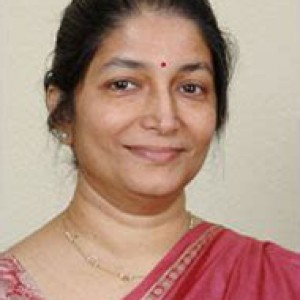
Prof. Gupta received her PhD in Economics from the University of Maryland, USA. She set up a centre for health economics and policy research in her institute, the first of its kind in India. Prof Gupta’s work experience has been diverse, including teaching and academic institutes, the World Bank, and the Government of India. Her areas of interest cover a wide range of topics in the area of health economics and policy, and include demand for health and health care, health financing and health coverage, poverty and health, cost and cost- effectiveness, economics of diseases, and international agreements and their impact on public health.
Key expertise: Equity, Health Economics, Health Systems, Non-Communicable Diseases, Universal Health Coverage, Policy development, Maternal and Child Health, Research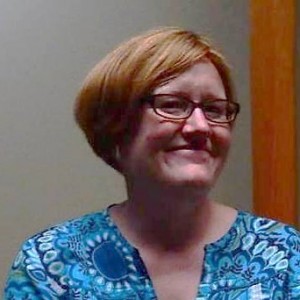
Sarah Hill is a public health physician and senior science advisor to the Ministry of Health in New Zealand and an Honorary Research Fellow at the Global Health Policy Unit in the University of Edinburgh, United Kingdom. She has over 20 years’ experience in public health including research, teaching and policy and has worked in a range of settings spanning New Zealand, Europe, West Africa, South America and the USA. Sarah has published widely on the role of multinational tobacco, alcohol and processed food companies in driving non-communicable disease epidemics and exacerbating inequalities in relation to gender, class and race/ethnicity. For over 10 years she was a senior editor for the international journal Tobacco Control.
Key expertise: Equity, Gender, Governance, Intersectionality, Non-Communicable Diseases, Research, Social sciences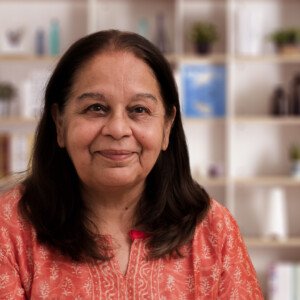
Renu Khanna has over four decades of experience in gender equality and human rights in health, with a particular focus on sexual and reproductive health and rights (SRHR). She is the co-founder of SAHAJ (Society for Health Alternatives), a community-based organisation established in 1984, which began its work with urban poor waste-picking women. Over the years, SAHAJ has addressed issues ranging from SRHR and adolescent health to transformative masculinities. Beyond her practitioner work, Renu is an active member of feminist and SRHR movements and coalitions in India, as well as regionally and globally. She brings deep experience in translating grassroots realities into actionable policy recommendations. She currently serves on the WHO Gender Advisory Panel, is a Distinguished Fellow at The George Institute for Global Health (Australia), and is a member of the Independent Advisory Committee for the global consortium Women of the South Speak Out.
Key expertise: Community engagement, Equity, Gender, Governance, Health Systems, Implementation Research, Intersectionality, Masculinities, Maternal and Child Health, Programme implementation or service delivery, Rights and Ethics, Sexual and Reproductive Health, Universal Health Coverage, Social sciences, Advocacy, Gender based violence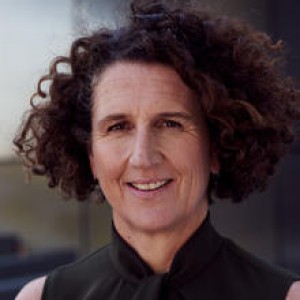
Dr Klugman’s previous positions include Director of Gender and Development at the World Bank, fellow at the Kennedy School of Government’s Women in Public Policy Program at Harvard University, and director and lead author of three global Human Development Reports published by the UNDP. She regularly participates in major global gender policy initiatives, including most recently the Lancet Series on Gender Equality, the Bill and Melinda Gates Foundation’s work on Women’s Economic Empowerment, and the Council on Foreign Relations’ Advisory Committee on Economic Inclusion and Global Growth. She is currently advising VicHealth, Australia to bring behavioral insights to advancing gender equality; UN Women, the World Bank and partners on justice for women; the World Bank on the gender dimensions of forced displacement; and working with the UN Development Program on human mobility. She was included in the Apolitical Inaugural List of the World’s 100 Most Influential People in Gender Policy in 2018 and in 2019.
Key expertise: Equity, Health Economics, Humanitarian, Crisis, and Disaster settings, Law, Policy development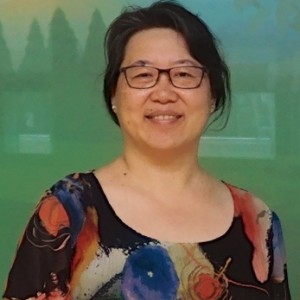
Professor Vivian Lin is Honorary Professor at the LKS Faculty of Medicine, University of Hong Kong and Adjunct Professor of Public Health at LaTrobe University, Melbourne. She has over 40 years of experience in public health, spanning health policy and programme development, health planning, and public health teaching and research. She was previously Executive Associate Dean at the LKS Faculty of Medicine, University of Hong Kong; Director, Division of Health Systems at the WHO Regional Office for the Western Pacific; and Professor of Public Health and Head of the School of Public Health at La Trobe University. She has also held senior policy roles across several Australian jurisdictions, including as Executive Officer of the National Public Health Partnership.
Vivian is the author of several leading public health textbooks in Australia and has published widely on health issues in Australia, China, and globally.
Key expertise: Universal Health Coverage, Programme implementation or service delivery, Policy development, Health Systems, Governance, Health Workforce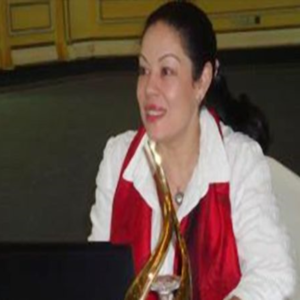
Dr. Khadija Moalla holds a PhD in International Law and Human Rights from the University of Paris V, France. Her repertoire includes extensive expertise in gender equality, health, governance, international and civil society organizations. Dr. Moalla is one of the Founding Members of the New Middle East Gender Parity at the World Economic Forum and a Founding Member of the Global Legal Network. She has provided advice and shared in constructing policies of the League of Arab States and the Arab Parliament. Dr. Moalla received the Leadership Award from the United Nations General Assembly President for her work with Religious Leaders through the establishment of the Multi-Faith Network CHAHAMA and also received the Excellency Award of the 2010 South-South Global Expo for successful innovative Solutions. Dr. Moalla was chosen as one of the most influential 40 women and 500 personalities of the Arab region, in 2011. In January 2021, she received the European Union Lina Ben Mhenni Freedom of speech Award.
Key expertise: Advocacy, Communications and media, Community engagement, Equity, Gender, Gender based violence, Governance, Health Economics, Implementation Research, Law, Policy development, Programme implementation or service delivery, Research, Rights and Ethics, Sexual and Reproductive Health, International Law, rule of law, SDGs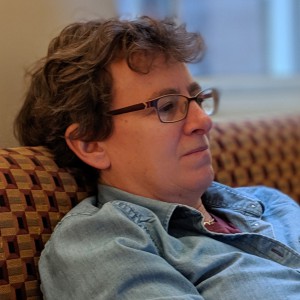
Nina Schwalbe has held numerous global health leadership positions including as Managing Director for Policy and Performance at Gavi, the vaccine alliance, where she led Gavi’s work in strategic planning, policy development, market-shaping, performance management, and monitoring and evaluation. She also served as the principal advisor and acting chief of health at Unicef, overseeing their health programs in over 150 countries, led the Policy team at Global Alliance for Tuberculosis Drug Development, and directed the global public health programs for the Open Society Foundation. Nina has worked for both Population Council and AVSC International (now Engender Health) and holds degrees from Harvard and Columbia Universities. She was appointed as a lifetime member of the Council on Foreign Relations and serves as a Senior Fellow at the United Nations International Institute for Global Health and Chair of Gavi’s evaluation advisory committee. More information can be found at https://www.ninaschwalbe.info/
Key expertise: Digital Health, Governance, Maternal and Child Health, Non-Communicable Diseases, Advocacy, Infectious diseases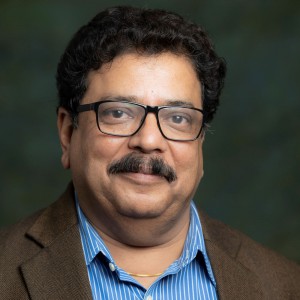
With three decades of experience, Ravi Verma has extensively contributed in the area of gender and health from the perspective of reproductive health, HIV and family planning. His research is focused on primary violence prevention, child marriage prevention, sexual and reproductive health issues and engaging men and addressing masculine norms. He has published extensively on these issues in both Indian and international journals of repute.
Throughout his career, he has held multiple positions within the Government of India, as a professor at the International Institute for Population Sciences in Mumbai and as a Member of the High-Level Committee on the Status of Women (HLCSW).
Key expertise: Gender, Gender based violence, Masculinities, Research, Social sciences
Lynsey Robinson is the Health Lead at Global Health 50/50 and has served as Programme Administrator for the Lancet Commission on Gender and Global Health since 2022. She completed her PhD in 2024 at UCL’s Faculty of Education and Society, where her research explored gender, religion, and regional dynamics in Nigeria’s primary education system, as well as the historical role of private and non-state sector engagement.
Key expertise: Equity, Gender, Research, Social Sciences, Public Private Partnerships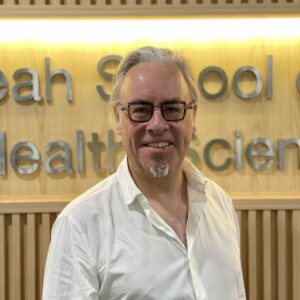
Kent Buse is a political economist with expertise in policy analysis. He is an academic activist, and believes in the democratisation of opportunity and seeks to contribute to the development of a new social contract based on justice, fairness and rights for all. Kent has published widely on rights, gender, equity, and governance in health, applying these lenses to a range of urgent global issues.
Kent is the co-founder and co-CEO of Global Health 5050, a leading gender equality research and advocacy platform active in global health, justice and finance. He was the inaugural Director of the Healthier Societies Program at The George Institute for Global Health and retains an honorary appointment at the School of Public Health, Imperial College London.
He previously served as Chief of Strategy, Policy and Research at UNAIDS for over a decade, and has held faculty positions at Yale University and the London School of Hygiene & Tropical Medicine. He currently serves as the chair of the policy and prevention committee of the World Obesity Federation.
Kent is the co-author of Making Health Policy, a leading global health textbook, now in its third edition.
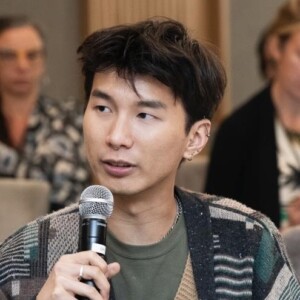
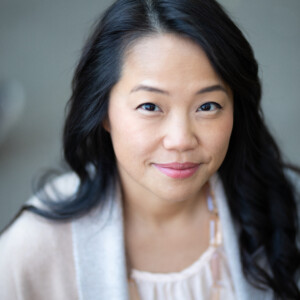
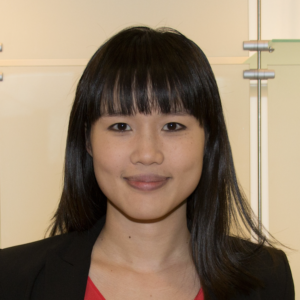
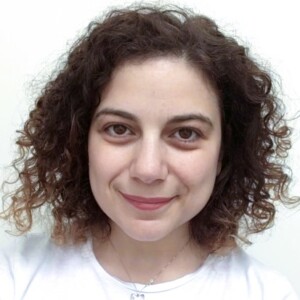
Virginia Zarulli is an Associate Professor of Demography at the Department of Statistics of Padua University. Her primary research interests are gender differences in survival, health and survival dynamics at old ages and long terms trends in health and mortality. She publishes in major international journals such as PNAS and Population Health Metrics. Her work has been reported in important news outlets such as BBC, The Guardian, The Times, and the New York Times. Virginia holds a PhD in Demography from La Sapienza University of Rome, during which she spent long research stays at major demographic research institutes such as Max Planck Institute for Demographic Research (Rostock, Germany) and Institut national d’études démographiques (Paris). She defines herself as a demographer interested in population dynamics and arts and crafts (much to her three kids’ delight).
Key expertise: Gender; Research; Demography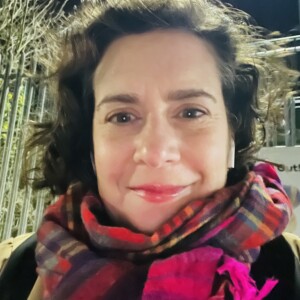
Erica Nelson is a Fellow at the Institute of Development Studies in the Health and Nutrition Cluster. Her work focusses on the entangling of past and present, critically examining the unequal power dynamics and hierarchies of knowledge in global health and development as shaped over time. She works at the intersection of humanities and health, grounded in community engagement and participatory methods and emancipatory praxis. She is a Salzburg Global Fellow engaged in the Robert Woods Johnson Foundation-funded programme on ‘Centering on Equity: Transforming the Health Science Knowledge Systems’ and currently leads an IDS initiative on ‘Reimagining Sexual and Reproductive Health and Rights in Times of Crisis’. She is a founding member of the Nourish “equitable wellbeing for all” initiative and runs a short-course on Enabling Empowering Community Engagement and Involvement in Global Health Research. She has co-developed programmes of research supported by the AHRC, ESRC, Wellcome Trust, and the NIHR.
Key expertise: Community Engagement; Equity; Gender; Health Systems; Research; Rights and Ethics; Sexual and Reproductive Health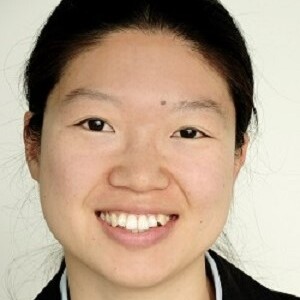
Rebekka Park is a Senior Editor at The Lancet in Munich, Germany. Before joining The Lancet she was Journal Manager for several medical Frontiers journals including Frontiers in Cardiovascular Medicine, for which she helped launch a sub-section within the journal on Sex and Gender in Cardiovascular Medicine. She also worked as Managing Editor for the Journal of Molecular Medicine where she also helped ensure gender balance in the annual Editorial Board rotation. Rebekka holds a MSc in Molecular Life Science and a PhD in translational Biomedical Science from the ETH Zurich, Switzerland.
Key expertise: Communications and Media, Non-Communicable Diseases, Research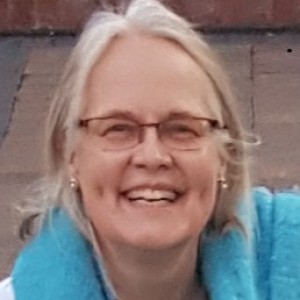
Catherine Campbell’s work focuses on the role of various forms of social mobilisation (from small scale community mobilisation to global social movements) in tackling local and global health inequalities and driving health-enabling social change – in the interests of facilitating enhanced prevention, care and treatment in the fields of women’s health, Mental health and HIV/AIDS. Campbell is recipient of the British Psychological Society award for Distinguished Career Contribution to Social Psychology, the American Sociologists AIDS Network Career Contribution Award, and the South African Association of the Advancement of Science Distinguished International Scientist Award.
Key expertise: Community engagement, Gender, Gender based violence, Programme implementation or service delivery, Research, Sexual and Reproductive Health
She is formally Founder/Director of the Institute for Intersectionality Research and Policy at Simon Fraser University in Vancouver, Canada. Dr. Hankivsky is an internationally recognized expert in gender mainstreaming, gender-based analysis, and intersectionality-based analysis. She has 25 years+ experience working across academia, government, NGO, and international organisations including WHO and UN. She has been a Visiting Professor at the Graduate Institute Geneva, London School of Hygiene and Tropical Medicine and Columbia University. Currently she is Principal Visiting Fellow UNU IIGH. Part of her work has focused on Ukraine, including in the areas of HIV/AIDs, violence against women and children, trafficking, gender equality advancement, public health, and health reform.
Key expertise: Equity, Gender, Intersectionality, Implementation Research, Migration, Research, Policy development, Social sciences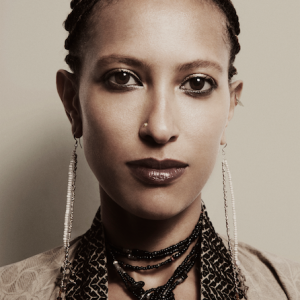
Jessica Horn is a feminist analyst and technical advisor on women’s rights with twenty years of experience in civil society, donor and multilateral spaces in the Africa region and globally. She has served as Director of Programmes for the African Women’s Development Fund, Senior Advisor to AIR at the Stephen Lewis Foundation and Co-ordinator of Amanitare, the African Partnership for Sexual and Reproductive Health and Rights. In a thought leadership role Jessica pioneered the AWDF Futures initiative, forecasting the future of women’s rights in Africa, and led the creation of AIR a practice-based initiative to reconceptualise approaches to trauma and mental health and wellbeing from an African feminist perspective. Jessica is co-author of “Prevention of violence against women and girls: lessons from practice.” The Lancet (2015) and lead author of the Cutting Edge Pack on Gender and Social Movements (BRIDGE/ Institute for Development Studies). She is a founding member of the African Feminist Forum working group and chairs the Program Committee of the Fund for Global Human Rights.
Key expertise: Advocacy, Communications and media, Community Engagement, Equity, Gender, Gender Based Violence, Programme Implementation or service delivery, Rights and Ethics, Sexual and Reproductive Health, Social Sciences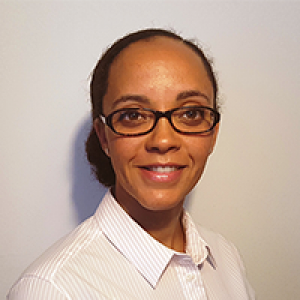
Emma joined UNU-IIGH in 2018 and is currently a Senior Researcher for the Translation of Evidence to Policy pillar of work. Her research interests centre around interrogating notions of what is considered evidence, who is considered an expert, and integrating a foresight approach into policy design. Emma also leads the Secretariat for the Lancet Commission on Gender and Global Health.
Emma is passionate about creating safe spaces to work with diverse and under-represented voices to inform decision-making processes. Prior work in this space includes projects to increase access to informal science learning for those on the margins of society, including young offenders and refugees, community engagement workshops for early career health researchers, and using human-centred design to help policymakers better engage with young people.
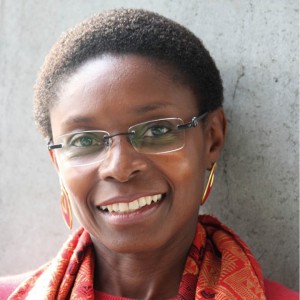
Professor Pascale Allotey is a leader in gender, equity, health and human rights.
Her recent work includes challenging the boundaries of global health, advocating for accountability in the decolonization of global health and international development, and expanding opportunities to diversify the voices of contributors to global debates and decision making – particularly in evidence generation, policy and programme implementation within the UN system, with governments, NGOs and the academic community.
Professor Allotey is a triple-certified nurse, midwife and public health nurse with a multidisciplinary background in clinical health sciences, implementation research, anthropology, and epidemiology. She holds a PhD in Public Health and a MMedSci in Community Health from the University of Western Australia, and a BA in Nursing and Psychology from the University of Ghana, Legon.
Bringing over three decades of experience as a global public health researcher, Professor Allotey has published extensively including on: sexual and reproductive health; harmful traditional practices; gender, sex and disease; migrants and refugees; health systems research; implementation research, and community engagement.
Prior to joining WHO, Professor Allotey was Director of the United Nations University International Institute for Global Health (UNU-IIGH) in Kuala Lumpur Malaysia. Originally from Ghana, her previous posts include: Professor of Public Health and Deputy Head of School (Research) at the Jeffrey Cheah School of Medicine and Health Sciences, Monash University (Malaysia); founding Associate Director of the South East Asia Community Observatory (SEACO Malaysia); Professor of Race, Diversity and Professional Practice, Brunel University (United Kingdom).
Key expertise: Community Engagement, Digital Health, Equity, Gender, Health Systems, Implementation Research, Intersectionality, Maternal and Child Health, Migration, Policy development, Research, Rights and Ethics, Sexual and Reproductive Health, Social sciences, Universal Health Coverage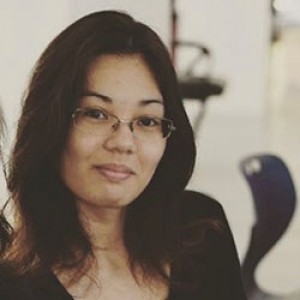
Tiffany Nassiri-Ansari holds a Bachelor’s in Arts and Social Sciences from Monash University Malaysia, where she double-majored in Global Studies and Gender Studies. She currently serves as a Research Assistant with the United Nations University – International Institute of Global Health, and a Secretariat member for The Lancet Commission on Gender and Global Health. In the latter role, she provides research support to the Co-Chairs and coordinates the Commission’s webinar series In Conversation With as well as Changemakers, the Secretariat’s flagship public engagement programme. Current areas of research include the historical evolution of gender and health, contemporary contestations of gender, and decolonial feminism.
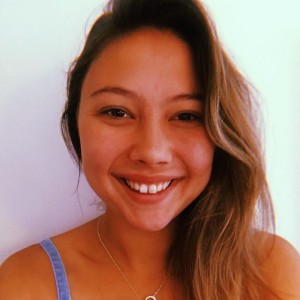
Anna works as a Programme Manager at the Institute for Global Health, focusing on gender, NCDs and public engagement, and is the Programme Manager for Global Health 50/50. She holds a MSc in Anthropology from Development from the LSE, and a BA in Social Anthropology from Cambridge University. She has previously spent time in Geneva working at UNAIDS.
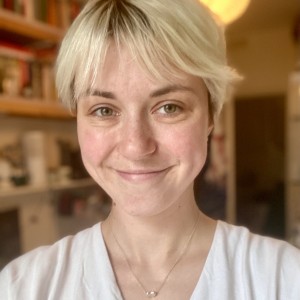
Katia works as Project Administrator for The Lancet Commission on Gender and Global Health, at the Centre for Gender and Global Health. She holds a MA in European Culture and Thought from UCL, and a BA in English Literature from the University of Cambridge. She has worked in research and administration previously, as well as with the Red Cross.
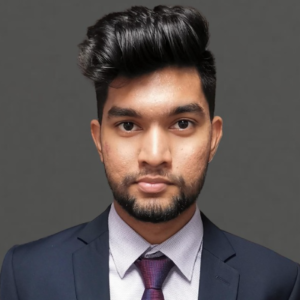
Thepan has a degree in actuarial science and currently works as a programmer analyst at Cognizant, where he works closely with developers and testers to come up with state-of-the-art technology or applications. He aspires to be a data scientist and apply his advanced analytical skills in positive social change (‘Data for Good’). He is also keen to contribute to processes to accelerate digital transformation using AI and machine learning. He is an advanced Python, R, PowerBI and Tableau user and has demonstrated experience working for start-ups, international development organisations and global corporations. More information about Thepan can be found in his LinkedIn profile.

Putri, a UNU-IIGH research intern, is an Indonesian public health professional, medical doctor, and intersectional feminist with expertise and interest in Sexual Reproductive Health and Rights (SRHR), intersectional gender equity, and global health equity.
She holds a Master of Science in Public Health degree from KIT Royal Tropical Institute (The Netherlands) and a Medical Doctor degree from Padjadjaran University, Indonesia.
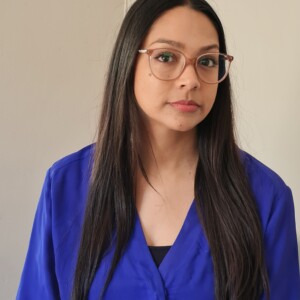
Rifqah Abeeda Roomaney is currently undertaking her PhD in Public Health at the University of the Western Cape. She is also a PhD Fellow at the United Nations University International Institute for Global Health. Since completing her Masters, she has worked on large-scale national health surveys and the second South African Comparative Risk Assessment. Her interests include burden of disease methodology, multimorbidity and, gender and health.
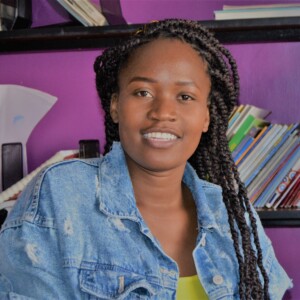
A Pan-Africanist and young feminist activist, Melvine is passionate about gender, racial, and social justice with experience in advancing gender equality through grassroots and digital activism and advocacy. She has over 4 years of experience in the capacity strengthening of young feminists and women activists in Kenya. With a passion for Sexual Health Rights, young feminists’ leadership, and combating violence against women and girls, Melvine advocates nationally, regionally, and globally for recognition of women’s and girls’ human rights through digital tools and community engagements. As a digital activist and WHRD, she advances the rights of women and girls in digital platforms and mobilizes young women to take up their spaces in leadership. She also trains young women and young women-led organisations in using digital platforms such as social media for advocacy and lobbying, WordPress accounts for blogging, and content curation.
Melvine envisions a violence-free society where there is respect for women’s rights and dignity regardless of one’s origin, gender identity and expression, sexual orientation, sexual characteristics, race, age, or culture. She lives to see a society where adolescent girls, young women, and queer folks make informed choices about themselves and their bodies and meaningfully participate in policy processes at the national, regional, and global levels. She subscribes to African feminist values as outlined in the Charter for African Feminists Principles. In 2019, she won the Inspirational and Innovative Leader award from the Canadian and British Red Cross Societies, and successfully made a keynote presentation during the Women Deliver Conference in Canada.
Key expertise: Advocacy, Community Engagement, Digital Health, Equity, Gender, Intersectionality, LBGTQI+, Programme Implementation or Service Delivery, Rights and Ethics, Sexual and Reproductive Health
Kanksha Barman is a researcher in the Health Policy Research Unit of IEG. She holds a M.Phil and MA in Linguistics and a Bachelor’s in Statistics and is a Fulbright fellowship recipient. She has been working in health and development research for 5 years with a focus on health economics, health financing and cross-cutting gender issues.
Key expertise: Gender, Health Economics, Intersectionality, Research, Sexual and Reproductive Health
Jessica Booysen is a Mentor at the Activist Education & Development Centre, working with adolescent girls and young women. She is a proud youth activist with experience in advocacy work, community mobilisation, community engagement, and sexual health and reproductive rights.
Key expertise: Advocacy, Communications and Media, Community Engagement, Sexual and Reproductive Health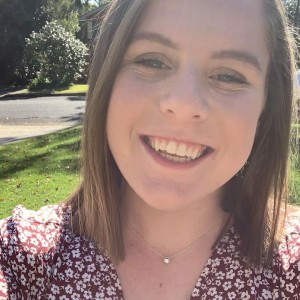
Mackenzie is currently completing a Bachelor of International Public Health at UNSW, and is also working as an intern at UNU-IIGH, primarily working on The Lancet Commission on Gender and Global Health. Her main interests include women and children’s health, burden of disease and global health systems.
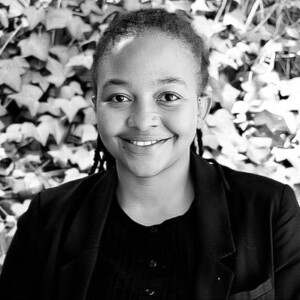
Lucy Kombe is a young feminist who is growing her career as a women’s rights advocate and Sexual and Reproductive Health advocate. She has a keen interest in enabling adolescent girls and young women in all their diversities, to empower themselves with the knowledge and skills they need to facilitate enjoyment of their SRHR. She is currently the Program Officer at Zamara Foundation, where she oversees programs and supports communications. She is intentional in creating platforms for young women to speak about and amplify their own issues and solutions.
Key expertise: Advocacy, Communications and Media, Digital Health, Gender, Intersectionality, Sexual and Reproductive Health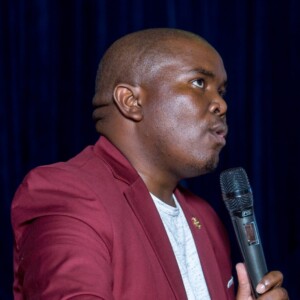
Reverend Mawande Sanelise Lugongolo is a community worker and gender activist based in South Africa, working with men and boys on a range of issues regarding gender and health.
Key expertise: Advocacy, Community Engagement, Gender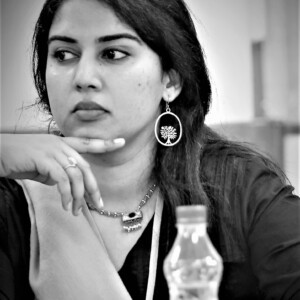
Avantika Ranjan is a research analyst in the Health Policy Research Unit of the Institute of Economic Growth, Delhi with a Master’s degree in Sociology. Her areas of focus have been health financing, budgets, health systems and costing of government programmes.
Key expertise: Health Economics, Health Systems, Health Workforce